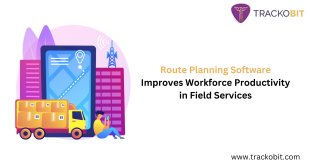Starting from nothing and building a dating app can be an interesting endeavour, particularly given the growing market for unique ideas. With the popularity of online dating and the success of other dating apps including well-known models like Tinder, 2025 offers a special chance for fresh market players. Focusing on important issues, features, and techniques to help you create a successful app, this article will examine the fundamental stages in dating app development.
The Landscape of Dating Apps in 2025
Emerging Trends
User expectations change with technology. Users of 2025 want meaningful connections rather than only swiping. Important trends are:
- AI-Powered Matchmaking: Using machine learning techniques to improve user experience by means of customized matching depending on preferences and behavior.
- Safety Features: Users of online dating give safety top priority as it is still becoming more and more important and calls for in-app reporting systems and verification processes.
- Virtual and Augmented Reality: Including VR and AR components will give consumers immersive experiences that let them connect in novel and fascinating ways.
Competitive Analysis
You need should do a competitive study before starting the development procedure. Review current apps, particularly successful models like the Tinder clone app, to find their shortcomings. Knowing the competitive scene will help you to create your feature set and USP.
Defining Your Target Audience
Identifying User Demographics
Developing a good dating app requires first knowing your target market. Think on demographics including age, gender, interests, and geography. Customizing your software to particular user groups will raise involvement and happiness.
User Needs and Pain Points
Use focus groups or questionnaires to learn what possible users of a dating app search for. Talk about shared issues including:
- Lack of meaningful connections
- Safety concerns
- Ineffective matching algorithms
By focusing on these aspects, you can design features that cater to your audience’s needs.
Key Features to Include
Some aspects of your dating app development are absolutely necessary to guarantee user involvement and pleasure.
User Profiles
Let consumers build thorough profiles including images, bios, interests, and preferences. To improve authenticity and trust, think about including verifying procedures.
Matching Algorithm
Create a strong matching system that takes activity, location, and user interests among other things. Over time, machine learning can enhance this ability by honing matches depending on user comments.
Messaging System
Crucially, a communications system should be safe and easy for use. While giving privacy top priority, think about adding vanishing messages or voice notes to improve user interface.
Safety Features
Integrate safety measures such as:
- Profile verification
- In-app reporting and blocking options
- Location-sharing features for meeting safety
Payment Gateway
Integrating a trustworthy payment gateway is crucial whether your software is meant to be sold through subscriptions or in-app transactions. Think of presenting a freemium model pricing for premium services that offers fundamental capabilities for free.
Designing the User Experience
User Interface (UI)
A visually appealing and intuitive UI is vital for user retention. Focus on:
- Clean and simple layouts
- Easy navigation
- Engaging visuals that resonate with your target audience
User Experience (UX)
Give UX top priority by means of user testing to obtain app usability comments. Point up areas of difficulty and iterate on the design to produce a flawless experience.
Choosing the Right Technology Stack
Frontend Development
Choose a technological stack fit for the needs of your project. Think about frontend frameworks like React Native or Flutter, which enable seamless user experience and cross-platform development.
Backend Development
Choose strong systems and databases able to safely manage user data for backend development. Popular choices are technologies ranging from Node.js to Django to Ruby on Rails. Make sure your backend can rise to meet rising user bases in scale.
Hosting and Deployment
Select dependable hosting solutions capable of managing heavy traffic and including required security mechanisms. Scalability and dependability abound from choices including AWS, Google Cloud, or Azure.
Development Process
Agile Methodology
Apply Agile development to provide adaptation and flexibility all during the project. Divide the development process into reasonable sprints to allow for ongoing improvement grounded on user comments.
Prototyping and MVP Development
Test your idea on the market starting with a minimum viable product (MVP). Pay attention to fundamental elements that set your app apart and get user comments to improve and simplify use.
Marketing Strategies
Building a Brand
Create a brand that speaks to your target market uniquely. Your branding should capture the goals and values of your app, thereby forging close relationship with users.
Digital Marketing
Utilize digital marketing strategies, including:
- Social Media Marketing: Engage potential users through platforms like Instagram, Facebook, and TikTok.
- Content Marketing: Create blog posts, videos, and tutorials that provide value and attract users to your app.
- Influencer Collaborations: Partner with influencers in the dating niche to reach a broader audience.
App Store Optimization (ASO)
maximize your app for app stores’ searchability. Make sure users can quickly locate your dating app by include pertinent keywords in your app title and description.
Monetization Strategies
Subscription Model
Think of using a subscription approach to provide consumers access to upscale capabilities. While improving user experience, this method can create a consistent income source.
In-App Purchases
Let consumers buy app virtual gifts, boosts, or other enhancements. There can be more income possibilities thanks to this monetizing approach.
Advertisements
Another source of money is integrating advertisements. Still, make sure ads enhance rather than compromise the user experience.
Launching Your App
Beta Testing
Before the official launch, conduct beta testing to identify any issues and gather user feedback. This phase is crucial for ensuring your app is polished and user-friendly.
Launch Strategy
Plan your launch meticulously. Create buzz around your app through pre-launch marketing campaigns and collaborations. Leverage social media, press releases, and influencer marketing to maximize visibility.
Post-Launch Considerations
User Feedback
Once your app is live, continuously gather user feedback to improve features and address concerns. Implement a robust feedback system to allow users to share their experiences.
Regular Updates
Update your software often to improve security, correct problems, and add fresh features. Maintaining involvement and happiness will depend on keeping sensitive to user needs.
Analytics and Metrics
Track user activity, involvement, and retention rates using analytics tools. Future updates and marketing plans will be informed by this information, which will help you to change with the tastes of users.
Conclusion
Starting from scratch in 2025 for a dating app calls for a multifarious approach including knowledge of user wants, application of essential features, and building of a strong marketing plan. Stressing creative ideas, user interface, and safety can help you carve out a niche in the saturated dating app scene. Your app might become the go-to tool for people looking for meaningful interactions with proper preparation and implementation.
 Daily Blogger News Stay updated with the latest trends and insights. Your reliable source for daily updates and information.
Daily Blogger News Stay updated with the latest trends and insights. Your reliable source for daily updates and information.







